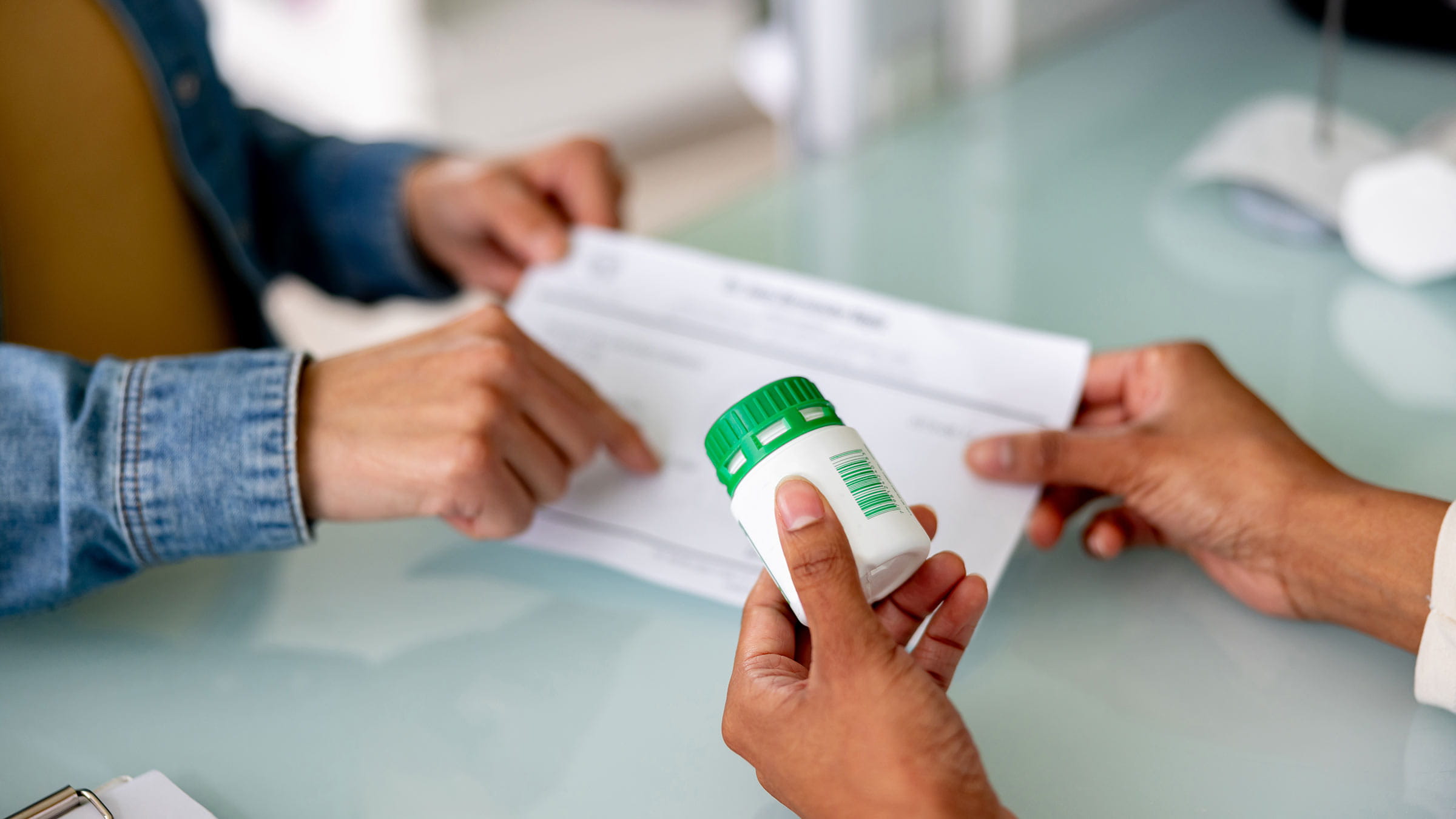
If you’ve ever been overwhelmed when navigating an insurance policy, reading the fine print for a prescription discount card or worrying about a new medication’s side effects, you’re certainly not alone. And there’s someone who can help: your local pharmacist. When you have a question about medication or how to pay for it, pharmacists are the experts, and you should always feel free to reach out.
There are a few issues we find patients wrestling with on a regular basis. Read below for some tips to make your trip to the pharmacy a little easier.
Insurance coverage
When you sign up or renew your insurance each year, you're also signing up for pharmacy insurance. While there's a relationship between your medical insurance and your pharmacy insurance, people don’t always realize that they’re not the same thing.
To bill for your medications, we need your pharmacy insurance billing information, which may be on a specific pharmacy insurance card or on the same card as your medical insurance information.
Often times now, we can access your information through a portal using your birthdate, which allows us to bypass those cards. If we have the correct birthdate information, we can bill before you arrive and find out your copay.
The best thing to do is to call before you visit and ask the price of the medication. If you feel it’s too much, the pharmacist can make sure the insurance information is correct. If it is correct, the pharmacist should be able to reach out to the doctor to determine whether there’s an option to switch to a more affordable medication.
Paying for prescriptions
There are four different ways to pay for prescription medications:
- Insurance
- Discount cards (like GoodRx)
- Drug manufacturer coupon cards
- Pharmacy cash/retail-price system
Any one of these options may help more than another at any given time. It doesn’t hurt to ask if the pharmacy’s price is less expensive than the price you’re paying by another method.
Discount cards for prescriptions
When it comes to discount cards, there's no guarantee that the price of a medication will be the same amount in the pharmacy as it was when you checked online at home it. The price could also change from month to month. Further, some pharmacies don’t accept discount cards and will offer their retail price instead, which is frequently less expensive.
Also, when you accept the discount card, they take your information, including your ZIP code, the drug you take and your age range, and they're selling that data. You’re giving them your data in exchange for a lower rate, which may not always be the lowest.
Who to call about prescription issues
When you have a question or concern about your prescription, you’ll almost always want to reach out to the pharmacy first.
If you need to call the insurance company, we’ll let you know. This would mainly be if the information we’re receiving about your copay is different from what you expect it to be and we can’t straighten it out with the insurance company ourselves.
The main reason to call the doctor would be if you’re out of refills and need to request a prescription renewal.
Prescription medication backorders
Unfortunately, over the past year, we've had a lot of medications on backorder — primarily stimulant medications for ADHD and medications that help manage blood sugar as well as weight loss. It's really frustrating for patients because these are life-altering medications.
The shortages are partly due to increases in provider recommendations and patient demand, as well as fewer manufacturers making certain medications in the wake of the COVID-19 pandemic.
Unfortunately, we don’t always have information on when the medications will become available, so sometimes we’re shooting in the dark. But we do our best and give patients the information that we have.
Prior authorizations for prescription medication
You may need a prior authorization, meaning the health insurance has to sign off on the medication, if a health care provider prescribes a certain drug. This might be because the insurance company usually prefers a different treatment or requires specific criteria be met for coverage. This can happen with a medication a patient has been on for years if that patient switches to a new insurance company.
The pharmacy can start the prior-authorization process by sending information to the provider’s office. The provider will fill out information and send it to the insurance company, and the insurance company either approves or denies the request. However, this information does not get sent back to the pharmacy. In such cases, it’s best to contact the pharmacist every few days and ask them to try to process the prescription.
The role of the community pharmacist
In health care, pharmacists serve as the checks and balances for the providers who prescribe medications, ensuring they’re used safely and effectively. If we’re taking longer to get a prescription filled, it may be because we need to ensure that you'll be safe on the medication.
For example, with pain medications, there's a concern that they could cause breathing issues based on age and the other medications a patient is taking. Before filling the prescription, we might need to document lab work or ensure access to naloxone at home.
Pharmacists review prescriptions being filled to make sure they won’t react with other medications you’ve had filled at that pharmacy. In some cases, doctors might not be aware of the interactions because the other medications were prescribed by a different provider. In these cases, I may need to call the doctor and ask if there might be another medication option.
What your pharmacist doesn’t know
That being said, your pharmacist won’t have access to your medical records or knowledge of any medications that you’ve had filled at different pharmacies. I recommend trying to get all your medications from the same pharmacy so they can double check for interactions with all new medications.
One of the challenges is that some insurance companies incentivize people to get medications through mail order. That can save patients a lot of money, so if you opt to do that, make sure you take a list of your medications to other pharmacists so they can add them to their system.
Answering medication questions
Pharmacists want to help you use medications better. Some offer services that help educate patients about their prescription medications and make sure their doses are on track. This also helps us update our systems with the most current information.
The pharmacist can answer questions about the over-the-counter medications as well. If you’re not feeling well, we also may be able to help you determine if you should see your primary care doctor, get to urgent care or visit an emergency department.
Getting a vaccine at the pharmacy
If you’re getting a vaccine at the pharmacy, check to find out if an appointment is required and be prepared to fill out some paperwork. One of the most important questions we ask is how you’re feeling, because you shouldn’t get a vaccine if you’re not feeling well. Wear a short-sleeved shirt, and know that you might need to wait a bit for the pharmacist to prepare the vaccine.

Manage your health care anytime, anywhere
MyChart is your free, secure online portal to manage your appointments, medications and so much more.
Learn what you can do with MyChart




